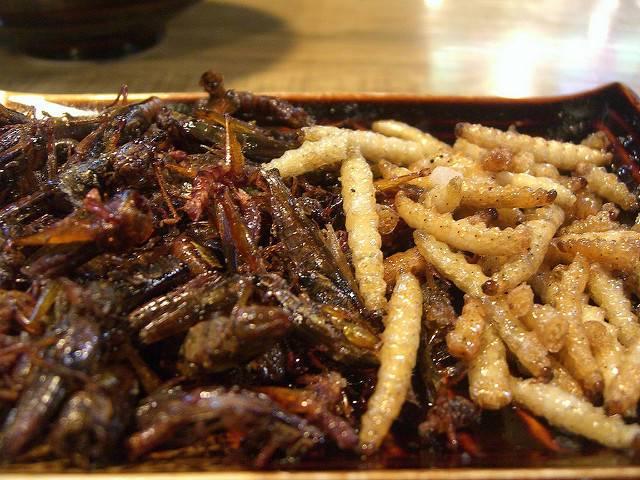
According to the startup database service Crunchbase, the popularity of high-protein diets, concern over animal welfare and Silicon Valley’s obsession with the next hottest innovation has led to at least $250 million invested in what the company describes as the “alternative protein space.”
The companies that have received millions in funding include the usual suspects: the leading plant protein headline-grabbers, Hampton Creek, Impossible Foods and Beyond Meat. But the roster also includes laboratory meat startup Memphis Meats and cricket flour-based Exo Protein. Banza, a Detroit-based company that makes pasta with chickpea flour, and Koia, which crams its drinks with plant-based proteins, have also gained millions of dollars from investors.
One simple reason for all these dollars flowing to these companies is that these products are improving in quality and taste. The mealy veggie patties and rubbery fake chicken strips of yesterday are getting better. Not that everyone is fan: Crunchbase’s Joanna Glasser, for example, was restrained in her assessment of the trendy Impossible Foods’ “bloody burger.”
“The Impossible Burger was edible,” said Glasser, “It was not lumpy; it was not an old shoe. But it was also very much not a burger. It remains firmly a substitute, not a replacement.”
Nevertheless, more consumers are clearly satisfied enough with a replacement, and hence these meat alternatives and protein additives have become more mainstream. Hampton Food’s Just Mayo products have long been on the shelves at Target and Walmart. Gardein and Quorn boast respectable shelf space in Target’s frozen foods section. Beyond Meat’s burger alternative is packaged to appear like its bovine-based cousin.
And these companies such as Beyond Meat are no longer dismissed by conventional food companies as niche, but as a complement and even competition. General Mills invested in Beyond Meat shortly after its pea protein and carrot fiber products made a splash at Whole Foods; Tyson Foods acquired purchased a stake in the Los Angeles-based fake meat company last year.
At the same time, there will always be consumers who want the real thing. While meat grown and cultured in a laboratory sounded like a ridiculous idea earlier this decade, Hampton Creek is bullish about this product and has said it has an ambitious plan to take such a product to market. Memphis Meats, which got its start making the “world’s first cultured meatball,” has gained over $3 million from investors as it seeks a jumpstart in the race to remove meat from slaughterhouses and produce it in a more humane way.
But the interest in alternative meat is also riding another trend, one that will not fade or buckle: statistics. Most estimates agree that the world’s population will hit the 9 billion mark by mid-century, and the amount of land needed to create more protein to feed a hungry population just does not add up for a sustainable, or livable, future. The world seeks food that does not necessarily come from our furry, feathered or scaled friends – nor from fields where soy or other crops are grown. Therefore, in this era during which everyone (not just millennials) wants to try the next best thing, protein-rich insect flour in the baking section may soon be the reality.
Israel-based Hargol FoodTech, for example, recently scored $600,000 for its quest to build its network of grasshopper farms. Companies with similar objectives, such as Eat Grub, BugEater Labs and Midgard Insect Farm have received small but notable cash infusions. Based on the popularly of the spicy deep-fried grasshoppers at Seattle Mariners baseball games earlier this spring, these startups, and their investors, may be onto something.
Image credit: Alpha/Flickr

Leon Kaye has written for 3p since 2010 and become executive editor in 2018. His previous work includes writing for the Guardian as well as other online and print publications. In addition, he's worked in sales executive roles within technology and financial research companies, as well as for a public relations firm, for which he consulted with one of the globe’s leading sustainability initiatives. Currently living in Central California, he’s traveled to 70-plus countries and has lived and worked in South Korea, the United Arab Emirates and Uruguay.
Leon’s an alum of Fresno State, the University of Maryland, Baltimore County and the University of Southern California's Marshall Business School. He enjoys traveling abroad as well as exploring California’s Central Coast and the Sierra Nevadas.














